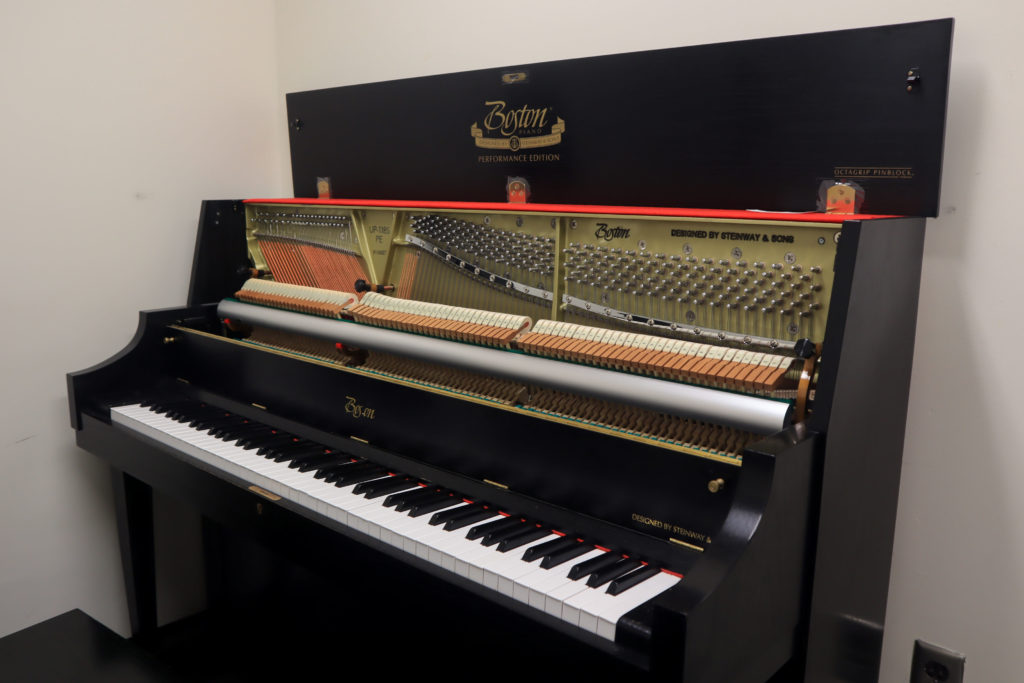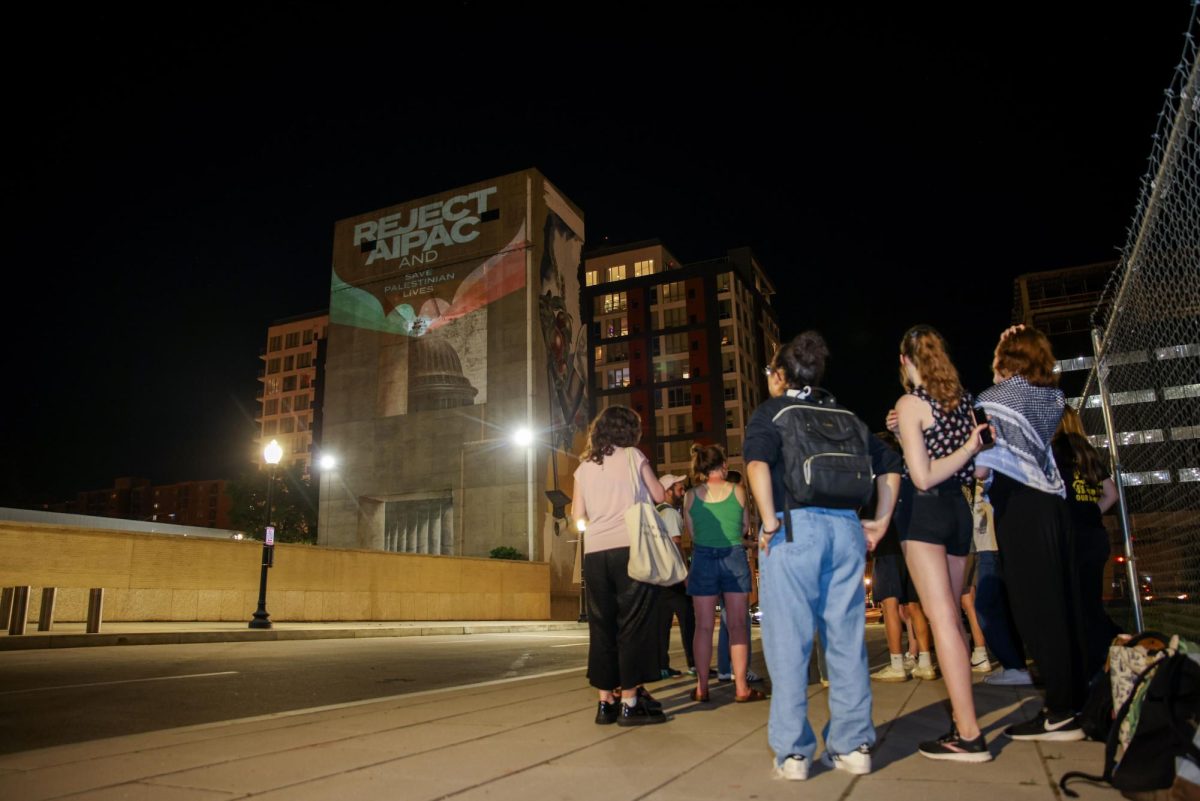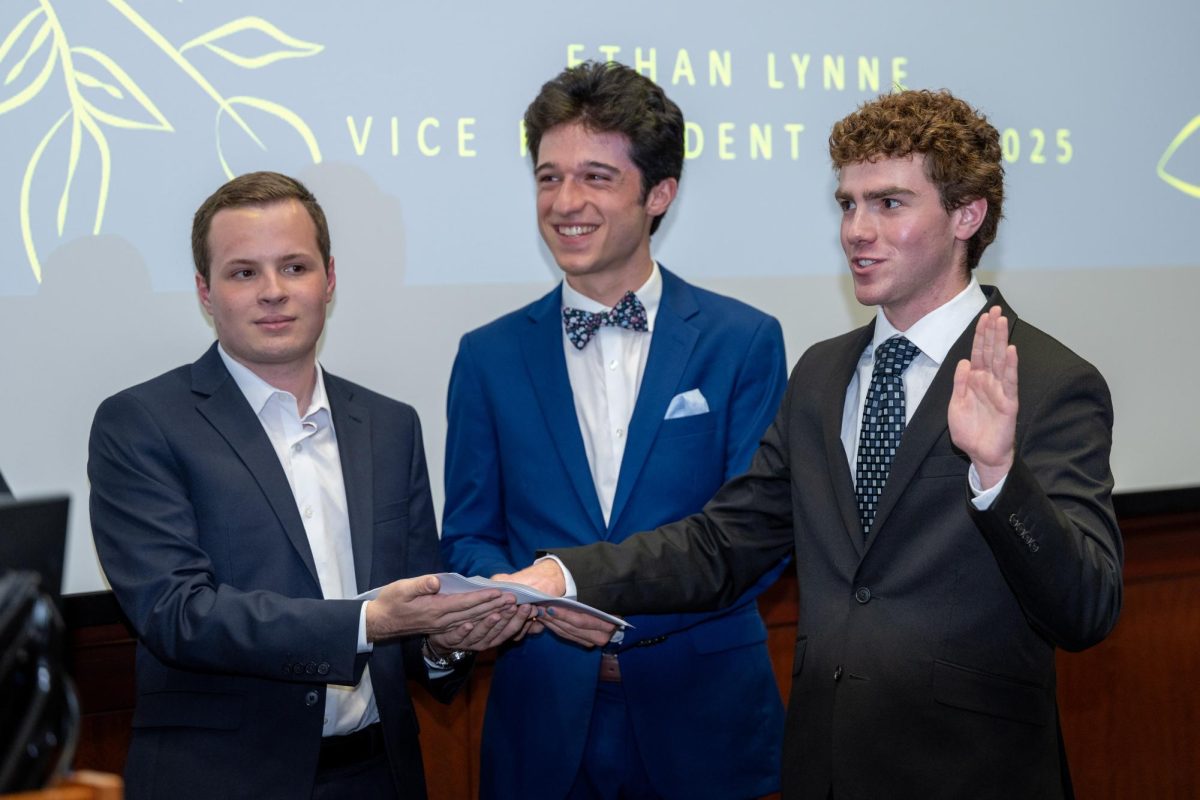Students looking to practice on University-owned pianos said they have found their sessions off-key.
More than a dozen students studying music said sweltering practice rooms, untuned piano strings and broken keys and pedals have left pianos in Phillips Hall consistently out of tune. Students said the piano issues have made it difficult to improve their piano skills, and GW employees should conduct more frequent checks to tune the pianos and fix broken parts.
Phillips Hall practice rooms contain at least six pianos along with six grand pianos in the building’s classrooms reserved for professor demonstrations and student performances. West Hall has practice rooms in its basement that house three total pianos.
University spokesperson Julia Metjian said GW employees respond to piano maintenance requests “as needed.” She declined to comment on how often GW employees maintain Phillips Hall pianos and how the University intends to prevent functionality issues.
More than a dozen students who play the piano said hot practice rooms and a lack of piano maintenance make playing the Phillips Hall pianos “frustrating,” but they’re left with few other options to play on campus.
Pianos in Phillips Hall are available on a first-come, first-served basis, according to the Corcoran School of the Arts and Design’s website. Students in Corcoran can request free GWorld card tap access to the practice rooms in Phillips Hall, while non-Corcoran students are required to pay a yearly $30 subscription to access the building’s practice rooms.
Freshman Rob Brown, a music minor who has played piano since he was four, said piano key and tuning issues in Phillips and West halls prevent him from getting the “full experience” from practice. He said the keys in Phillips’ vertically strung upright pianos are also in “bad shape” after losing the resistance that controls the pressure musicians can place on the keys.
“That’s not extremely accommodating to people taking piano more seriously in my opinion,” Brown said.
Junior Letong Quin, an international affairs major and music minor who has played piano since he was four, said his clothes get wet after playing piano in the Phillips practice rooms due to high temperatures and humidity, which he said is due to a lack of air conditioning.
“Once it gets into the summer, the problem gets more obvious,” Quin said. “I’m wearing a shirt today. After two hours of practice, I’m expecting this entire thing to get wet.”
Loren Kajikawa, the chair of the music program in Corcoran and an associate professor of musicology at GW, said Corcoran hires a technician to tune and maintain the Phillips Hall pianos at least once per semester. He said students can email faculty if they notice issues with pianos.
The Piano Technicians Guild, an international organization of registered piano technicians, recommends pianos be tuned at least four times a year and pianos with more frequent use be tuned more often, according to its guidelines.
Kajikawa said Phillips, Smith and Rome halls have had “serious” issues with maintaining “consistent temperatures,” a problem that could damage pianos. He said the music department has devoted a “significant” portion of its budget to maintaining the pianos in Phillips where temperatures fluctuate between too hot and too cold in short spans of time due to the District’s inconsistent weather, which can make the instruments go out of tune because piano strings expand and contract rapidly.
“Even with this regular maintenance, some pianos are better than others at holding their tune,” Kajikawa said in an email.
James Colwell, a Maryland-based piano technician who tuned pianos at GW in the early 1980s, said the pianos’ frequent amount of play and the humidity in practice rooms likely weathered the condition of the instruments. He said pianos should be kept at around 45 percent humidity year-round.
Colwell said it could be more affordable for the University to replace pianos more than 40 years old instead of conducting repairs that cost “a lot of money” because aged pianos commonly have “multiple” functionality problems.
“There’s two things that go wrong in music schools – the pianos get played a lot, and the heating and cooling system is not up to snuff,” Colwell said.
Marilyn Nonken, a professor of music and music education at New York University and the chair of the university’s Department of Music and Performing Arts Professions, said a team of five technicians maintains the 300 pianos at NYU. She said they tune and replace piano strings, keys and pedals on a consistent basis. She said the technicians keep maintenance logs and predict issues like broken parts so they can plan piano maintenance years in advance.
“Some instruments are tuned every few weeks, practice room pianos and some studios receive tunings less often and public-facing spaces and recording spaces will receive tunings more often,” Nonken said in an email.
Junior Nick Anmahian, an information systems and music double major who has played piano for 16 years and performs with the GW Jazz Orchestra, said while there are enough pianos on campus for the number of piano players, the quality of the pianos is lacking because of broken pedals and keys.
“There have been several times where I can’t get access to a piano that I think is good enough to get some good practicing on,” Anmahian said.
Anmahian said playing piano is an “escape” for him, and the feeling of pressing keys and hearing the music helps him deal with stress. He said problems with the function of the pianos can make it difficult to express those feelings.
“When the piano is in a really poor condition, it’s hard to express the things you want to express when there’s that thing nagging at you that’s like, ‘Wow, that sounds like crap,’” Anmahian said.








